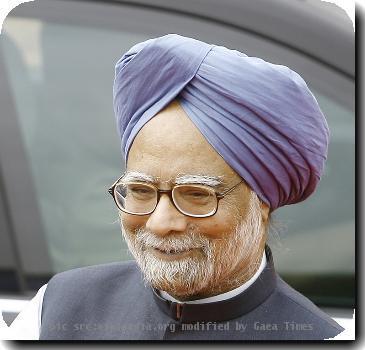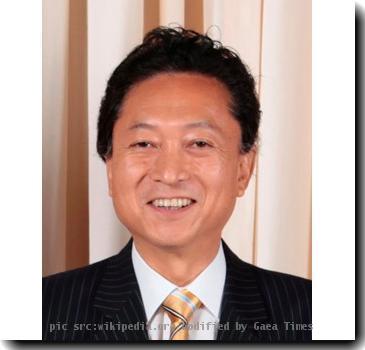India, Japan launch new security dialogue
By IANSTuesday, December 29, 2009
NEW DELHI - India and Japan Tuesday launched an action plan to take their security dialogue, including counter-terrorism, to the next stage and gave a push to a key economic pact. But a breakthrough in the critical civil nuclear area eluded them.
Prime Minister Manmohan Singh held talks with his Japanese counterpart Yukio Hatoyama for over an hour on a range of bilateral, regional and global issues including enhanced trade and investment, upgrading security dialogue, UN reforms, terrorism, climate change and nuclear disarmament.
After their talks, the two leaders signed an ambitious joint declaration entitled ‘New Stage of India-Japan Strategic and Global Partnership’, which has an action plan on security cooperation as its centrepiece.
“Prime Minister Hatoyama’s visit has succeeded in taking our partnership to a new stage. This is reflected in the joint statement that we have just signed, Manmohan Singh said at a joint press conference with the Japanese leader.
The action plan to advance security cooperation, based on a declaration signed in October last year, included a newly-established 2-plus-2 dialogue framework at the sub-cabinet/senior official level involving the external affairs and defence ministries.
The all-encompassing action plan includes sustaining various strategic and defence mechanisms, including an annual strategic dialogue at the foreign-minister level, regular consultations between national security advisers, and regular meetings between defence ministers.
Combating maritime piracy in the Indian Ocean and exchanging information to counter terrorism are some of the crucial elements of the action plan.
Describing the burgeoning economic ties between India and Japan as the bedrock of bilateral ties, Manmohan Singh noted that over the last few years the two countries have significantly diversified relations in the areas of defence, security and counter-terrorism.
Hailing the expansion of security dialogue, Hatoyama stressed on scaling up economic ties and expressed hope that the two sides will be able to conclude a key Economic Partnership Agreement (EPA) as soon as possible. The intensification of trade and investment, the Japanese leader stressed, will be good not only for India and Japan but for the entire world.
Although the two leaders discussed the prospects of civil nuclear cooperation, India’s hope of securing civil nuclear technology from Japan may take a while to materialise.
“We discussed civil nuclear cooperation. This would become a very important agenda in the future, Hatoyama said, indicating that Japan, a pacifist nation that swears by a hawkish non-proliferation agenda, may consider exporting atomic materials to India in future.
Hatoyama struck an optimistic note on spurring high-technology trade, saying that there was enormous scope in this area. He, however, added that India needs to assure Japan that the Japanese high-tech imports will not be diverted for weapons or to third countries.
The two countries pledged to cooperate in the area of universal nuclear disarmament and non-proliferation but differences over CTBT remained.
Hatoyama said his country hoped that India will sign and ratify the CTBT. But Manmohan Singh reiterated India’s calibrated position on the treaty it regards as discriminatory, indicating that New Delhi will consider if the US and China sign and ratify the CTBT.
(Manmohan Singh) said with regard to the CTBT (that) should US and China sign, it will create a new situation,” Hatoyama said.
Pitching for civil nuclear cooperation with Japan, Manmohan Singh underlined India’s “impeccable record” in nuclear non-proliferation and reiterated New Delhi’s commitment to universal, verifiable and non-discriminatory nuclear disarmament.

